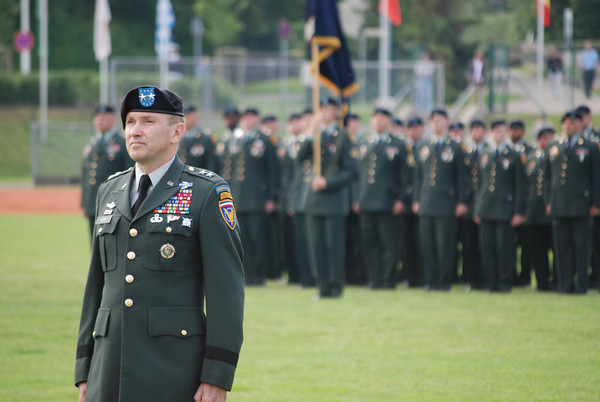
From Sean Kay, Foreign Policy: Impressions of European "free-riding" on the United States for military operations have been deepening in Congress and among the American public for years now. This resentment was foreseen long ago by George Kennan, who warned in 1948 that NATO incentivized European dependence on the United States, writing, "Instead of the ability to divest ourselves gradually from the basic responsibility for the security of Western Europe, we will get a legal perpetuation of that responsibility." Kennan believed, rightly, that "the political will of the U.S. people is not sufficient to enable us to support Western Europe indefinitely as a military appendage." Yet, even since the Cold War ended, the United States has sought an expansive role for NATO while criticizing allies for not spending more on defense — without realizing its own role in perpetuating European dependency. . . .
The primary and enduring security problem in Europe is the ongoing Eurozone crisis, which has forced sharp budget cuts across Europe and strained relations in the European Union. Thus, the last thing that Washington should do is ask allies to increase defense spending. America’s European allies, collectively, have substantial capabilities; the problem is not how much they spend, but rather how they coordinate. President Obama should change the incentives for America’s NATO allies to produce mutual gains across the Atlantic and strengthen the ties that bind America and Europe.
First, he should limit America’s NATO role to Article V collective defense, which, in the current environment, means its main contribution to NATO would be ballistic missile defense. Second, given the current threat environment, he should announce further reductions in America’s troop presence in Europe, especially U.S. Army forces. By 2015, land forces will be about 30,000 troops — but these should drop close to zero. Third, the United States should state clearly it will help the allies build and sustain the capacity to fight a Libya-style war and a Balkans-style peace operation without American involvement. Fourth, he should relocate U.S. European Command, Eucom, to the United States — modeling it after Central Command, which is based in Tampa, Florida. . . .
This week and in the weeks to come, the president should engage America’s closest allies and friends — particularly Britain, France, and Germany — on this matter. Presidential leadership can also help to break the legacy of decades of bureaucratic resistance in Washington to rebalancing the transatlantic relationship. It is time for the United States to make clear to its European friends that it is their moment to assume lead responsibility for their security — and that the United States will help them. If there is any place in the world where the United States can hand over lead responsibility for security matters, it is in Europe — and the time is now.
Sean Kay is Robson professor of politics and government at Ohio Wesleyan University and an associate at the Mershon Center for International Security Studies at the Ohio State University. (photo: David Robinson/EUCOM)
Image: eucom%203%206%2011%20EUCOM.jpg
